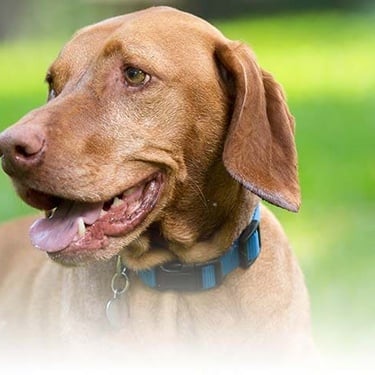
-
Find the right food for your petTake this quiz to see which food may be the best for your furry friend.Find the right food for your petTake this quiz to see which food may be the best for your furry friend.Health CategoryFeatured products
 Adult 7+ Small Bites Chicken Meal, Barley & Rice Recipe Dog Food
Adult 7+ Small Bites Chicken Meal, Barley & Rice Recipe Dog FoodSupports energy level and beautiful coat in mature dogs who prefer smaller kibble
Shop Now Adult Oral Care Small & Mini Chicken, Rice & Barley Recipe Dog Food
Adult Oral Care Small & Mini Chicken, Rice & Barley Recipe Dog FoodClinically proven kibble technology to reduce plaque & tartar build-up, specially designed for small & mini dogs
Shop Now Adult Small Bites Chicken & Barley Recipe Dog Food
Adult Small Bites Chicken & Barley Recipe Dog FoodSupports lean muscle for dogs who prefer smaller kibble
Shop NowFeatured products Sensitive Stomach & Skin Chicken & Beef Dinner
Sensitive Stomach & Skin Chicken & Beef DinnerGourmet daily nutrition, carefully made. Tasty chunks with chicken & beef in a decadent gravy. Supports digestive health, nourishes skin and promotes a lustrous fur.
Shop Now Adult Chicken & Spinach Casserole Cat Food
Adult Chicken & Spinach Casserole Cat FoodWith delicious chunks in a decadent gravy
Shop Now Adult 7+ Tender Tuna Dinner Cat Food
Adult 7+ Tender Tuna Dinner Cat FoodWith delicious chunks in a decadent gravy
Shop Now -
DogCat
- Cat Tips & Articles
-
Health Category
- Weight
- Skin & Food Sensitivities
- Urinary
- Digestive
- Kidney
- Dental
- Serious Illness
-
Life Stage
- Kitten Nutrition
- Adult Nutrition
Featured articles Water
WaterWater is the most important nutrient of all and essential for life. Animals can lose almost all their fat and half their protein and still survive, but if they lose 15% of their water, it will mean death.
Read More Pet Food Storage Tips
Pet Food Storage TipsWhere you store your cat and dog food can make a big difference in the quality and freshness once it is opened. Here are some common questions and recommendations for optimal storage for all of Hill’s dry and canned cat and dog food.
Read MoreHill's Australian Bushfire EffortsRead More -


If you've ever scarfed down a slice of cheese pizza while your dog longingly eyes your piece of pie, you might have been curious as to whether or not dogs can eat cheese. Maybe you're just curious if cheese is bad for dogs? Since the food can be a nourishing treat for humans, it makes sense to question whether it might also benefit your pet. Here's a breakdown of the pros and cons of sharing this snack with your pooch.
The Benefits of Cheese
Cheese is packed with nutrients, including calcium, protein, phosphorus, zinc and vitamins A and B12. However, these are nutritional benefits for humans; what's good for you won't necessarily serve your dog's nutritional needs.
However, this doesn't mean that cheese doesn't have its benefits. One advantage of cheese for dogs is that it can be used as a handy training tool. Also, a tasty morsel of cheese can help mask medicine that you're struggling to get your pup to take.



Tasty Tips
Is Cheese Bad for Dogs?
So, can dogs eat cheese? Or is it always a no-no? While there are some potential benefits of sharing cheese with your dog, the truth is that it may also cause them a host of health issues, including obesity and pancreatitis.
According to the ASPCA, "because pets do not possess significant amounts of lactase (the enzyme that breaks down lactose in milk), milk and other dairy-based products cause them diarrhea or other digestive upset." The takeaway: Don't give your dog cheese as part of their regular meal plan or as a frequent treat. While the food seems innocent, it could cause them major tummy trouble.
In addition to the issue of lactose, another problem with cheese for dogs is its high fat content. Feeding your dog fatty foods on a regular basis can lead them to gain an unhealthy amount of weight and can even cause obesity, which can in turn, lead to other health problems. According to the American Kennel Club, eating cheese can also cause pancreatitis, especially for breeds that are prone to pancreatitis like schnauzers and cocker spaniels, a serious and potentially fatal illness that can develop when dogs eat high-fat foods, which are hard for the pancreas to handle.
What About Cottage Cheese & Other Types?
Not all cheeses are created equal. Low-fat cheeses, such as mozzarella, cottage cheese and soft goat cheese may be healthier options for your dog than those with higher fat content. If shopping for dog-healthy cheeses, also be sure to take a close look at the ingredients. Some cheeses contain herbs and vegetables, such as chives or garlic, both of which can be toxic to dogs.
Before deciding whether to give your dog an occasional cheese snack, consult your veterinarian. They'll be able to help you figure out if it's an appropriate treat and if so, what kind of cheese would be best for them. Always remember, that with any food separate of your dog's normal food — including dog treats — should never account for more than ten percent (10%) of your dog's daily caloric intake. Just like humans, too many calories can lead to weight gain, which can lead to a host of other health conditions.


Erin Ollila believes in the power of words and how a message can inform—and even transform—its intended audience. Her writing can be found all over the internet and in print, and includes interviews, ghostwriting, blog posts, and creative nonfiction. Erin is a geek for SEO and all things social media. She graduated from Fairfield University with an M.F.A. in Creative Writing. Reach out to her on Twitter @ReinventingErin or learn more about her at http://erinollila.com.
Related products

Supports lean muscle for dogs who prefer smaller kibble

Supports energy level and beautiful coat in mature dogs who prefer smaller kibble

Clinically proven kibble technology to reduce plaque & tartar build-up, specially designed for small & mini dogs

Supports healthy joints, lean muscle, and beautiful coat for large breed dogs
Related articles

Learn how today's wet dog food blends have gotten a face lift, and how you'll provide your dog the nutrition he needs in the form he loves.

Extra pounds can cause problems for your dog's overall health. Learn the signs that your dog might be overweight, and what you can do to manage its weight.

Selecting the right food for your puppy is a key to quality nutrition and a long, healthy life., Learn more about how to select the right puppy food.

As small and toy breed dogs age, their nutritional needs change.

Put your dog on a diet without them knowing
Our low calorie formula helps you control your dog's weight. It's packed with high-quality protein for building lean muscles, and made with purposeful ingredients for a flavorful, nutritious meal. Clinically proven antioxidants, Vitamin C+E, help promote a healthy immune system.
Put your dog on a diet without them knowing
Our low calorie formula helps you control your dog's weight. It's packed with high-quality protein for building lean muscles, and made with purposeful ingredients for a flavorful, nutritious meal. Clinically proven antioxidants, Vitamin C+E, help promote a healthy immune system.

